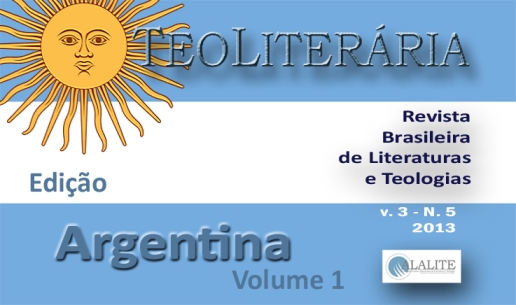Theopathic Experience and Theophanic Language. The Boundary Condition of Aesthetic Beauty in Teresa of Avila
DOI:
https://doi.org/10.19143/2236-9937.2016v3n5p11-23Abstract
The aim of this article is to suggest that beyond the explicit source Augustinian Patristic figures of Beauty and the interior Master and the hypothetical influence of Sufi poetry of pure love that dwells in the hearts, Teresa of Avila constructed as writer, a record that has a symbolic own paradoxical tension between the “apophatic way” of indifference and silence of all that is not God and the affirmation of the soul as a castle whose concentric crystalline inhabits interiority “Beauty theophanic”. So Teresian proposal is considered near-mystical poetic languages of waiting and emptiness of our time, to the extent that through the symbolic language provides tracing and mystical aesthetics of nudity, in which the Master inside reveal the pristine beauty of pure light as the goal of man’s way to the encounter with God.Keywords: aesthetic - Teresa of Avila - Interior Master - theophanic language.
Downloads
Published
2013-07-31
How to Cite
Avenatti de Palumbo, C. I. (2013). Theopathic Experience and Theophanic Language. The Boundary Condition of Aesthetic Beauty in Teresa of Avila. TEOLITERARIA - Revista De Literaturas E Teologias, 3(5), 11–23. https://doi.org/10.19143/2236-9937.2016v3n5p11-23
Issue
Section
Artigos Temáticos


